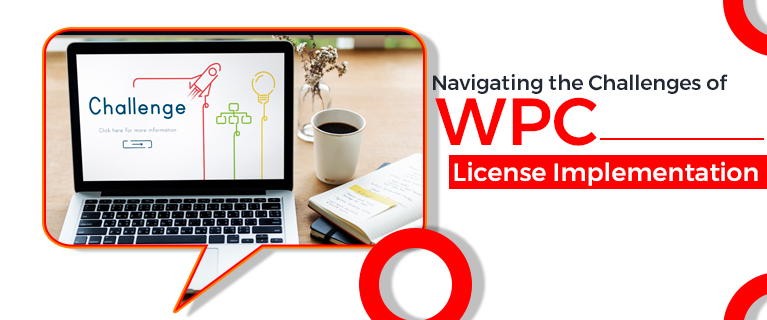Understanding WPC License And Its Diverse Uses
Wireless technology has revolutionised the way we communicate and stay connected in today's digital age. Whether it's mobile phones, Wi-Fi routers, Bluetooth devices, or satellite communication systems, wireless technologies have become an integral part of our daily lives. However, to ensure the efficient and interference-free operation of these wireless devices, regulatory authorities play a crucial role. In India, the Wireless Planning and Coordination (WPC) Wing of the Department of Telecommunications (DoT) is responsible for managing and regulating wireless communication. For this purpose, Wireless Planning and Coordination license is introduced here.
What is a WPC License?
A WPC License is an authorization issued by the WPC Wing of the DoT, allowing individuals or organisations to establish, maintain, and operate wireless communication systems in India. The WPC License is mandatory for using certain frequency bands and wireless technologies to prevent interference and ensure efficient spectrum utilisation.
Uses of WPC License
1. Mobile Communications:
Mobile phones are an indispensable part of modern life, and they rely on various frequency bands allocated by the WPC. A WPC License is essential for mobile network operators to provide cellular services to users across the country.
2. Wi-Fi Networks:
Wi-Fi technology enables wireless internet connectivity in homes, offices, public spaces, and various establishments. WPC License is required for setting up and operating Wi-Fi access points in specific frequency bands.
3. Bluetooth Devices:
Bluetooth technology facilitates short-range wireless communication between devices like headphones, speakers, keyboards, and smartphones. Devices operating in certain frequency ranges need a WPC License to ensure interference-free communication.
4. Satellite Communication:
Satellite communication plays a vital role in broadcasting, telecommunication, and data transmission. Organisations using satellite communication services require WPC Licenses for their ground stations and satellite uplinks.
5. Radio Broadcast:
Radio broadcasting stations, including FM radio and community radio stations, must obtain WPC Licenses to operate within the designated frequency bands.
6. Amateur Radio:
Amateur radio operators, also known as ham radio operators, use designated frequency bands for non-commercial communication. They need a WPC License to legally operate their amateur radio stations.
7. Radio Frequency Identification (RFID) Systems:
RFID systems use radio waves for identifying and tracking objects or individuals. Certain RFID frequency bands require a WPC License for operation.
8. Internet of Things (IoT) Devices:
IoT devices, which connect and exchange data through wireless networks, often operate within specific frequency bands, necessitating a WPC License for their deployment.
9. Remote Sensing Devices:
Remote sensing devices, such as weather monitoring systems and Earth observation satellites, use designated frequency bands and require WPC Licenses for their communication links.
10. Point-to-Point Communication:
Point-to-point communication links used in various industries, including telecommunications, defence, and corporate networks, require WPC License for operation.
Conclusion
In conclusion, the WPC License is a critical regulatory requirement for various wireless communication systems and devices operating in India. It ensures the efficient use of limited spectrum resources and minimises interference, promoting seamless wireless connectivity and communication. Whether it's mobile phones, Wi-Fi networks, Bluetooth devices, satellite communication systems, or radio broadcast stations, a WPC License is an essential authorization for ensuring the smooth operation of these wireless technologies. Obtaining a WPC License involves complying with the WPC's guidelines and regulations, and it may vary depending on the specific frequency bands and technologies used. As wireless technology continues to evolve and play an increasingly significant role in our lives, the WPC License will remain an indispensable aspect of the regulatory framework, ensuring the orderly and reliable functioning of wireless communication in India.


Comments
Post a Comment